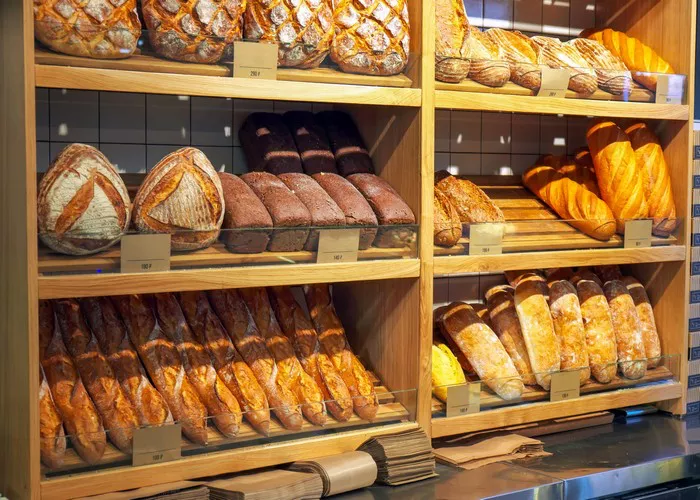In the ever-evolving landscape of franchising, entrepreneurs continually seek opportunities that promise profitability and brand recognition. 85 Degrees Bakery emerges as a prominent contender in the competitive bakery industry, offering a unique blend of Taiwanese-inspired delicacies and artisanal pastries. For aspiring franchisees eyeing the allure of this renowned bakery chain, delving into the intricacies of 85 Degrees Bakery franchise costs becomes imperative. This comprehensive guide navigates through the financial aspects of investing in an 85 Degrees Bakery franchise, shedding light on investment requirements, potential returns, and key considerations for prospective investors.
Understanding the Brand Essence of 85 Degrees Bakery
Before delving into the financial nuances, it’s paramount to grasp the essence and appeal of 85 Degrees Bakery. Established in Taiwan in 2004, this bakery chain has rapidly expanded its footprint globally, captivating consumers with its diverse array of freshly baked goods and innovative culinary offerings. Renowned for its commitment to quality, freshness, and affordability, 85 Degrees Bakery has garnered a loyal customer base, transcending geographical boundaries.
Unveiling the Investment Spectrum: Initial Franchise Fee
At the forefront of any franchise investment lies the initial franchise fee, serving as the gateway to join the coveted network of franchisees. The initial franchise fee for an 85 Degrees Bakery franchise typically ranges from $50,000 to $80,000, varying based on factors such as location, market demand, and territorial exclusivity. This upfront investment grants franchisees access to the brand’s proprietary recipes, operational guidelines, and extensive support infrastructure.
Infrastructure Investments: Build-Out Costs and Equipment
Beyond the initial franchise fee, prospective franchisees must allocate resources towards build-out costs and equipment procurement, essential for establishing a fully operational bakery outlet. Build-out costs encompass expenses related to leasehold improvements, construction, signage, and interior décor, with estimates ranging from $250,000 to $500,000, contingent on factors such as store size and location demographics.
Additionally, equipping the bakery with state-of-the-art machinery, ovens, refrigeration units, and display cases necessitates a capital outlay ranging from $100,000 to $200,000. While these investments constitute significant upfront costs, they lay the foundation for delivering an immersive bakery experience synonymous with the 85 Degrees brand.
Operational Expenditure: Working Capital Requirements
Sustaining day-to-day operations and navigating the initial gestation phase mandates adequate working capital reserves. Franchisees must factor in expenses such as employee wages, inventory procurement, utilities, marketing initiatives, and miscellaneous overheads when assessing working capital requirements. Depending on the store size and local economic dynamics, working capital needs typically range from $50,000 to $100,000, ensuring operational fluidity and resilience in the face of unforeseen contingencies.
Franchise Royalties and Ongoing Fees
In exchange for ongoing support, brand reinforcement, and access to proprietary resources, franchisees are obligated to remit royalties and ongoing fees to the franchisor. 85 Degrees Bakery typically imposes a royalty fee ranging from 4% to 6% of gross sales, enabling franchisees to leverage the brand’s goodwill and marketing prowess. Additionally, franchisees may incur marketing fees, typically amounting to 1% to 3% of gross sales, dedicated to regional and national marketing initiatives aimed at bolstering brand visibility and driving customer engagement.
Evaluating the Return on Investment: Financial Viability
While navigating the financial terrain of franchise ownership entails considerable upfront investments and ongoing expenses, assessing the return on investment (ROI) becomes pivotal for gauging the franchise’s financial viability. The profitability of an 85 Degrees Bakery franchise hinges on various factors, including location selection, operational efficiency, market demand, and consumer preferences.
Franchisees can anticipate an average annual revenue ranging from $500,000 to $1.5 million, contingent on store size, location demographics, and competitive landscape. With prudent operational management and adherence to brand standards, franchisees can achieve a respectable profit margin ranging from 10% to 20%, thereby realizing a favorable ROI within the stipulated timeframe.
Navigating the Franchise Application Process
Embarking on the journey towards franchise ownership necessitates navigating the rigorous application process outlined by 85 Degrees Bakery. Prospective franchisees are required to submit a comprehensive application, detailing their financial background, relevant experience, and strategic vision for operating a successful bakery outlet. Upon preliminary evaluation and approval, prospective franchisees undergo comprehensive training programs, equipping them with the requisite skills and knowledge to excel in bakery operations.
Conclusion
In conclusion, investing in an 85 Degrees Bakery franchise presents a compelling entrepreneurial odyssey characterized by financial rewards, operational autonomy, and brand prestige. By meticulously assessing the franchise costs, evaluating the return on investment, and aligning with the brand ethos, aspiring franchisees can embark on a transformative journey towards bakery ownership. With a steadfast commitment to excellence and customer satisfaction, 85 Degrees Bakery continues to redefine the contours of bakery franchising, beckoning visionary entrepreneurs to partake in its illustrious legacy.

